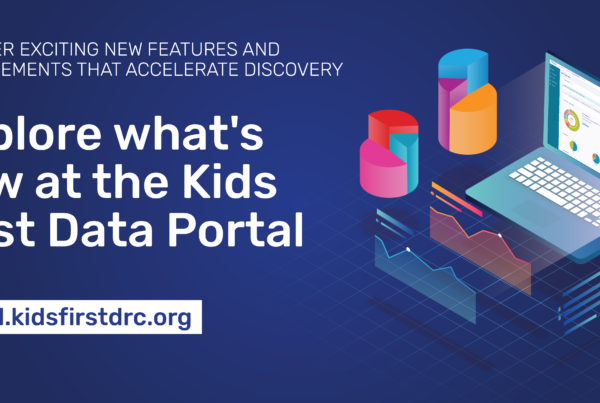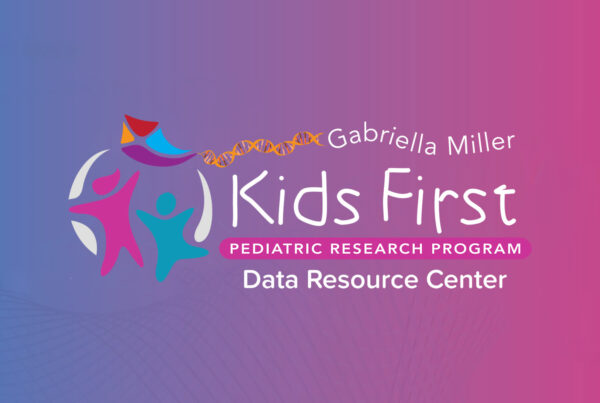Childhood cancer research has taken a monumental step forward with the launch of the Childhood Cancer Data Initiative (CCDI), a groundbreaking effort spearheaded by the National Cancer Institute (NCI). Childhood Cancer Data Initiative (CCDI) is a collaborative community endeavor supported by a 10-year, $500-million federal investment. It aims to learn from every patient diagnosed with pediatric cancer by designing and building a data ecosystem that facilitates data collection, sharing, and analysis of large datasets across interoperable platforms for researchers, clinicians, and patients across the cancer community.
A Holistic Approach to Data Sharing
The CCDI stands out as a first-of-its-kind initiative in the United States. It fosters pediatric data sharing across various thriving data ecosystems, bringing together the much-needed funding and resources for childhood cancer research. This holistic approach aims to leverage and share data globally, ultimately accelerating researchers’ understanding and clinical treatment of these devastating diseases.
A pivotal aspect of the CCDI is the introduction of data federation (a software process that allows multiple databases to function as one) using an innovative Application Programming Interface (API), which automates data software program communication and exchange across different systems. The CCDI is piloting a data federation with Children’s Brain Tumor Network (CBTN), Gabriella Miller Kids First Data Resource Center (Kids First DRC), the Pediatric Cancer Data Commons (PCDC), St. Jude Cloud, and the Treehouse Childhood Cancer Data Initiative. This data collaboration paves the way for establishing standardized data-sharing practices across various research efforts and data types.
CCDI aligns seamlessly with the National Institutes of Health’s (NIH) pediatric cancer research, particularly its successful molecular characterization initiative. CCDI offers clinical-grade sequencing and genomic profiling of rare tumors at no cost to patients. The goal is to establish a robust link among data, research, and clinical care, propelling advancements in individualized treatment for future generations of cancer patients.
The CCDI and Kids First DRC Connection
The collaboration between the Kids First DRC and the CCDI presents a significant milestone. The focus of the Kids First DRC on pediatric cancer and congenital disorders has made substantial contributions to an understanding of the innate aspects of childhood cancers. The Kids First data set transcends cancer sequencing; it encompasses a more holistic view of developmental diseases, including pediatric cancers and congenital disorders.
The CCDI is committed to making the Kids First DRC easy to use and share with others. This strong partnership signifies a commitment to maximizing the Kids First unique data set’s potential for researchers worldwide.
The success of the CCDI integration with the Kids First DRC hinges on the dedication of a remarkable team. Data scientists, including Dr. Allison Heath, William Khan, Hannah Calkins, and Chris Nemarich, have played instrumental roles in bringing this initiative to fruition.
“The Kids First DRC is a significant aspect of the CCDI because of its extensive collection of whole genome sequencing data across the spectrum of pediatric diseases,” explained Dr. Heath, Director of Data Technology and Innovation at the Children’s Hospital of Philadelphia (CHOP), home of the Kids First DRC operations center. “In addition to Kids First DRC, with significant contributions from CBTN, Saint Jude Children’s Research Hospital and the Treehouse Childhood Cancer Initiative will ensure the long-term success of CCDI.”
This alignment is a compelling example of Kids First data supporting CCDI and partner organizations’ goals. It underscores the far-reaching impact of the Kids First data set.
CCDI: Hope for the Future
The launch of the CCDI marks a significant step toward expanding data accessibility beyond the initial participating ecosystems. API standardization and incorporating new fields are crucial to enhance data searchability. By establishing the CCDI as a central hub for seamless data access, researchers can more easily access existing data with fewer obstacles.
The collaborative spirit within the CCDI powerfully reminds us of the collective will to raise the bar for data quality and accessibility in pediatric cancer research. The goal is to improve data access opportunities, eliminating the need for personal connections or insider knowledge to retrieve valuable information and ultimately find cures for the diseases that affect our children.










